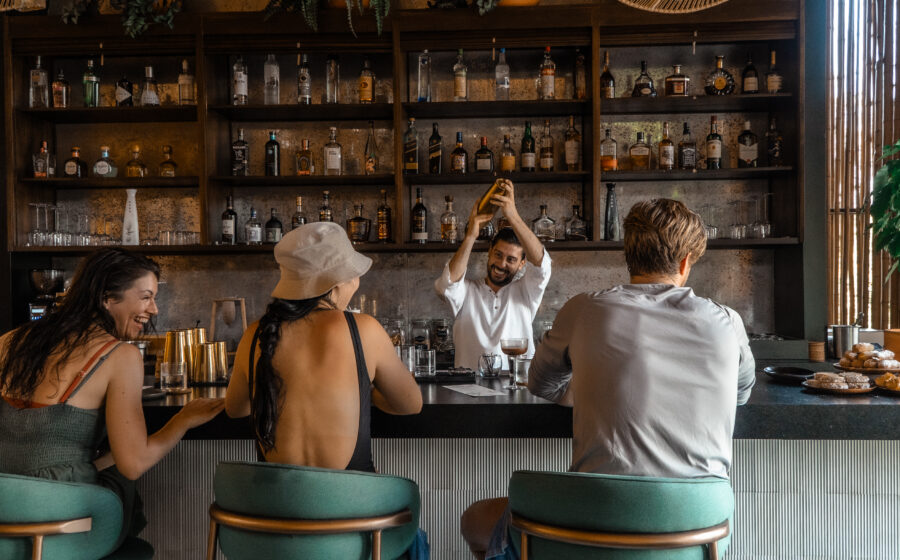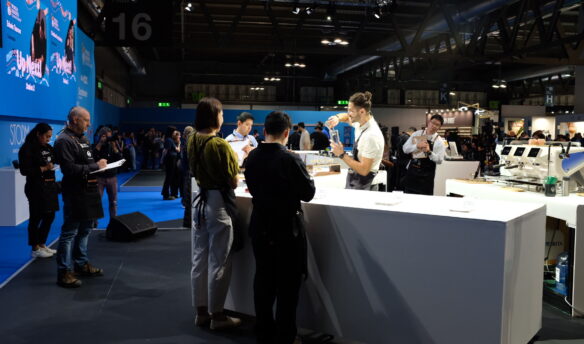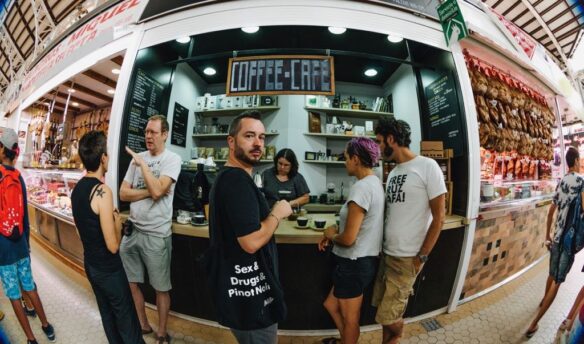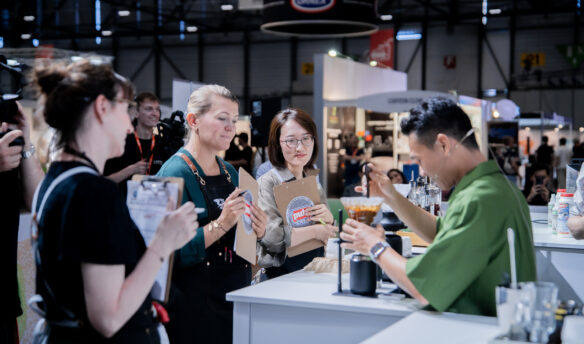For a long time, coffee was curiously overlooked in hotels. That was true even in high-end venues, where you’d expect rooms to be outfitted with more than just standard Nespresso machines. Today, however, that’s beginning to change, as luxury hotels both large and small start to level up their coffee programs. The result is more memorable experiences for guests—and more support for local coffee businesses.
The Swag—an all-inclusive Relais & Châteaux nature retreat in the Great Smoky Mountains—is one such luxury hotel that has reappraised its approach to coffee. Up until 2022, it didn’t even have a proper espresso machine on the property. That changed thanks to the involvement of Benji Lawrence, a bartender who first became passionate about coffee when he picked up a second job working at Starbucks in 2020.
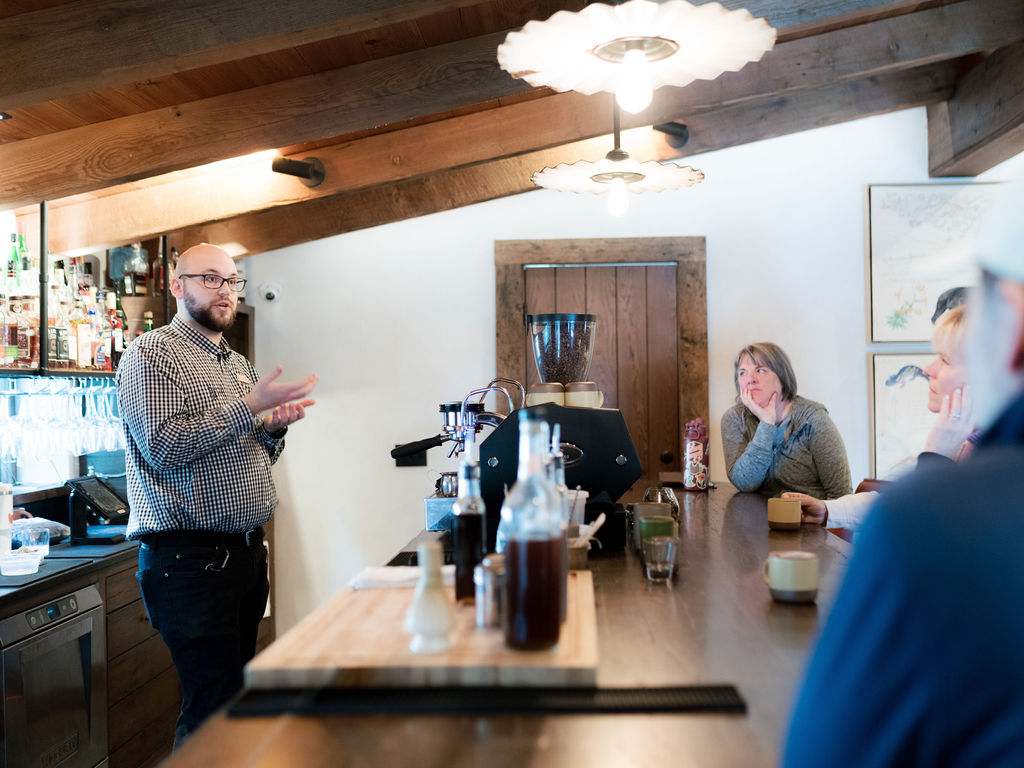
Lawrence ultimately spearheaded the hotel’s new specialty coffee program. Today, The Swag offers a custom blend from a local roaster, Orchard Coffee, plus housemade syrups and a changing seasonal drinks menu.
“I have free rein to be creative, and I’m using glassware that’s not normally available at coffee shops,” Lawrence says. He also has access to a range of ingredients from the kitchen, including whole vanilla beans and freshly roasted hazelnuts. The current menu reflects that culinary approach, with drinks including The Sassy Root (made with cold brew, sassafras, sparkling water, and butterscotch cold foam) and the perennial favorite Swag Classic Latte (made with hazelnuts, caramel, and smoked sea salt).
The Swag frequently welcomes returning guests, many of whom are older. Lawrence says he is mindful of keeping his coffee drinks approachable for that audience. While some experiments, including his Undertow drink, have flopped, overall he says guest feedback has been very positive.
Last November, Lawrence launched a weekly interactive barista class. He describes it as more of a conversation, driven by guest questions and curiosity. “We talk about how to make simple syrups at home, how to pull the perfect shot of espresso and practice latte art,” he says. He even once pivoted a class to focus entirely on matcha, following a guest request.
The Swag’s updated coffee program has already made an impact. “As we saw cafe-inspired coffee drinks and coffee culture continue trending, we felt it was a unique opportunity to engage guests and bring in a piece of their home routine that they cherish,” says managing director Will Jones. “Making The Swag feel like home, if you will.”
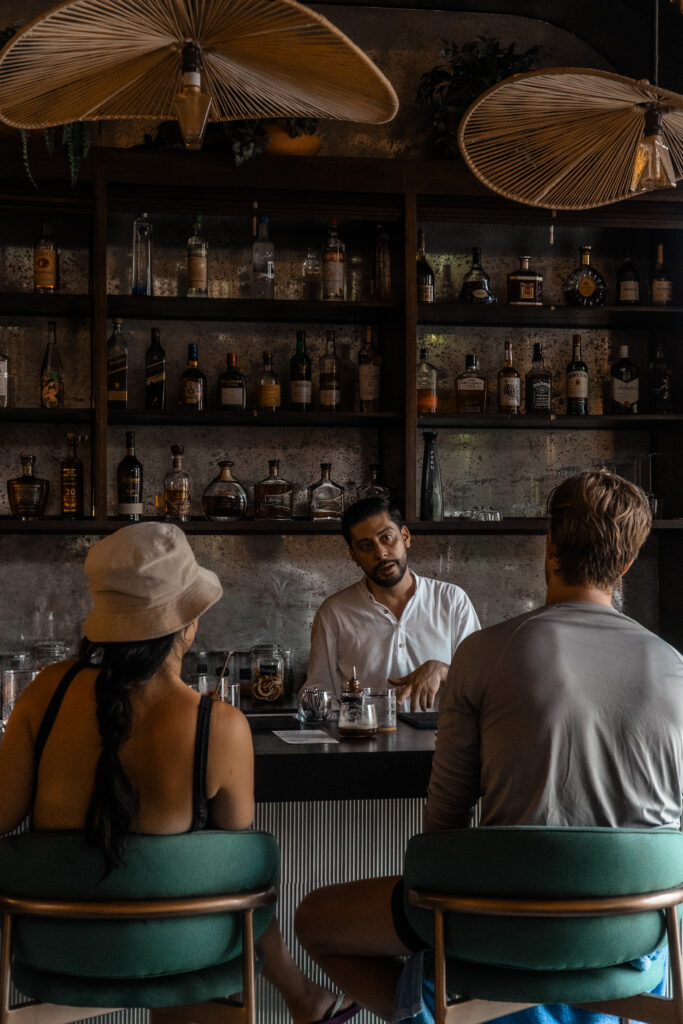
It’s also been a game-changer for Orchard Coffee, the hotel’s partner roaster. Founder Cabell Tice estimates that he roasts around 80 pounds of coffee a week for The Swag and its sister resort, Cataloochee Ranch. “It’s a substantial account for us,” he says. “But more than the volume, working with a hotel like The Swag really elevates your profile as a brand.” Tice has led in-depth barista training for the hotel’s team; one of The Swag’s bartenders, Max Carapia, even roasts coffee at Orchard. “Sometimes Max is serving coffee to customers that he’s roasted himself,” Tice says.
Coffee Plus Chocolate
Woodloch Resort, based in Pennsylvania’s Pocono Mountains, has also recently enhanced its coffee program. The hotel partnered with local roaster and chocolate maker Moka Origins for its on-site Gigi’s Coffee House, where it serves espresso drinks, specialty lattes, and rotating seasonal beverages. Woodloch buys approximately 60 pounds of coffee per week from Moka, and offers four different roasts, including a custom blend.
“We curated a signature experience for Woodloch that’s unique to their guests, blending Woodloch’s hospitality with our direct-trade sourcing and storytelling,” says Jeff Abella, CEO and co-founder of Moka Origins.
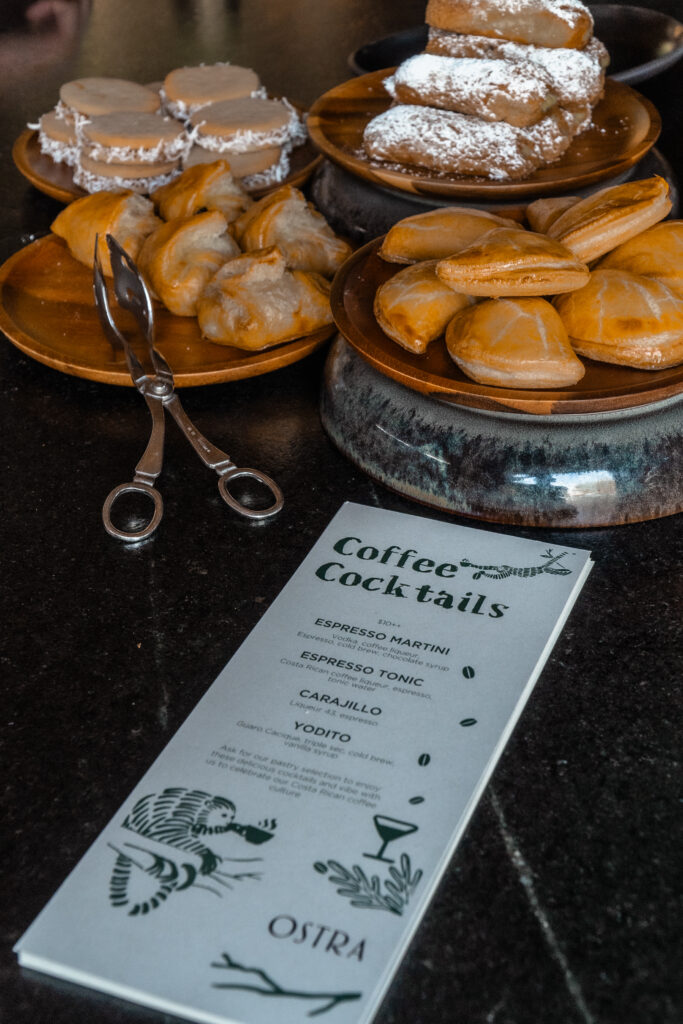
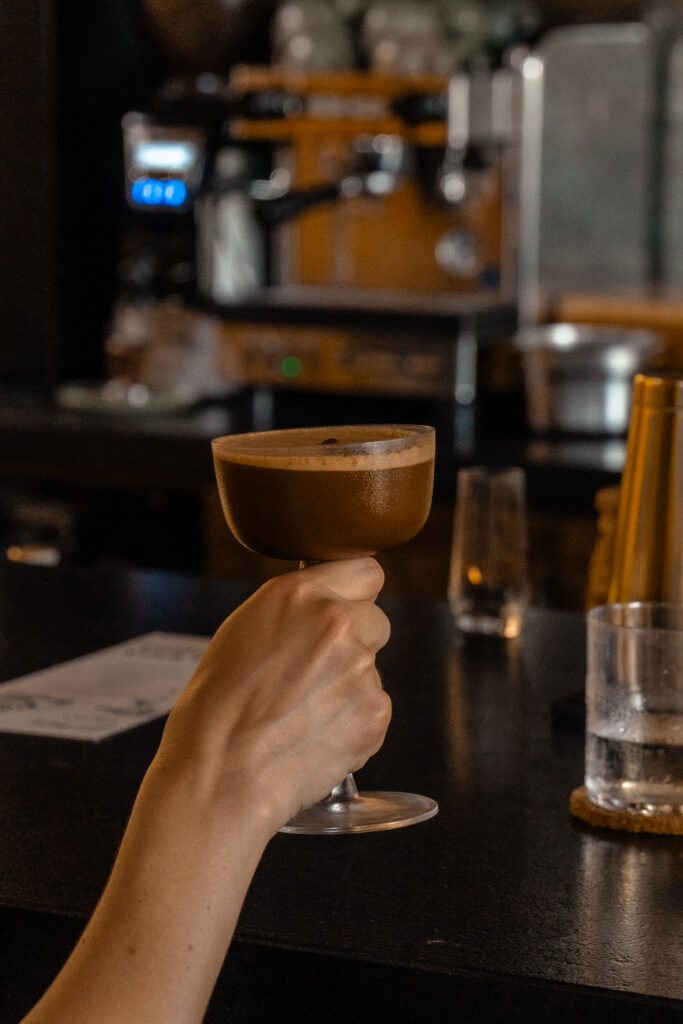
Erica Bloch, the hotel’s associate director of communications, notes that Moka Origins’ ethical sourcing model aligns with Woodloch’s values. “Many of our guests are increasingly mindful about sustainability and wellness, so the partnership with Moka allows us to offer an outstanding cup of coffee while also connecting them to a larger global impact story,” she says.
Since the program was introduced, Bloch says the hotel has received higher guest satisfaction scores around dining, plus strong social media engagement with coffee-focused posts. The program has also resulted in higher check averages.
Moka Origins has benefitted too, including from increased sales of its products. Abella says that the Woodloch partnership enabled the roaster to plant an additional 5,000 coffee trees last year, and buy an entire container of direct-trade coffee from Uganda.
Showcasing Local Agriculture
For luxury hotels in coffee-growing regions, like the Andaz Peninsula Papagayo Resort in Costa Rica, a creative and delicious coffee program is also a chance to showcase local agriculture. A year ago, the resort replaced a former gift shop with Coffee & Vinyls. The cafe serves coffee from the Costa Rica-based Café Britt and Cafetalera Orígenes, including specialty coffees made with diverse processing methods.
During the day, the cafe has evolved into a comfortable co-working space. In the evenings, Coffee & Vinyls switches over to coffee cocktails, and makes more than 100 vinyl records available for guests to listen to. Since its debut, the volume of coffee drinks sold at the resort has increased significantly.
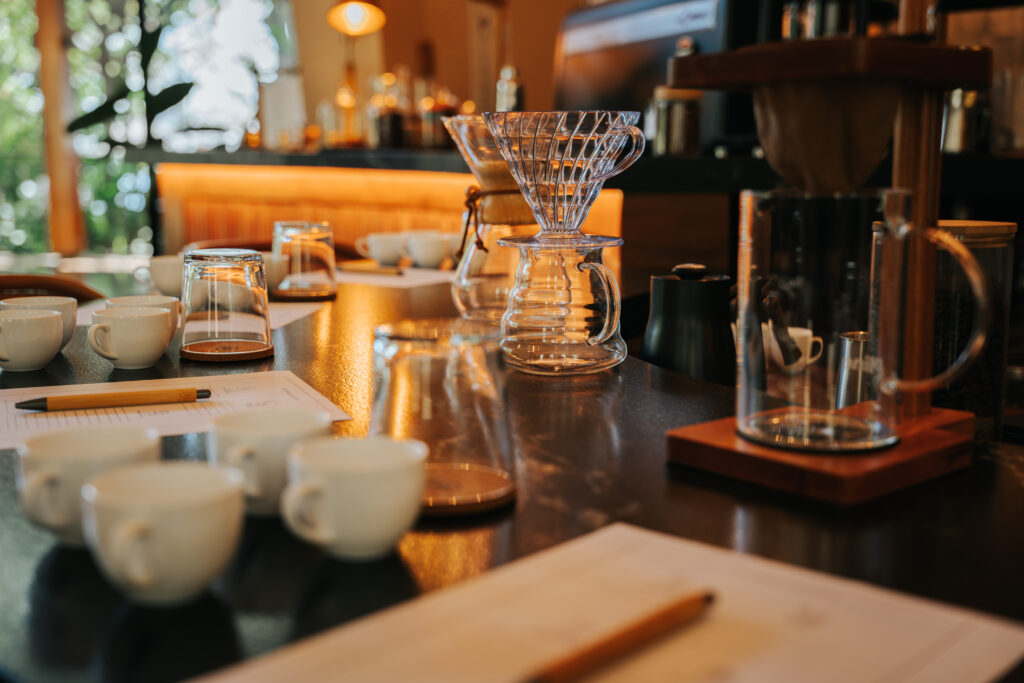
Meanwhile, Mexico City’s 16-room design hotel, Colima 71, sources beans directly from La Concordia in Chiapas for its all-day coffee bar. In the morning, a barista hand-delivers each guest’s preferred coffee order directly to their room, paired with pastries from Panadería Rosetta, one of the city’s most beloved bakeries.
Some high-end hotels are taking their coffee experiences even further. Mandapa, a Ritz-Carlton Reserve in Bali, now offers an excursion that transports guests to the Kintamani Highlands outside of Ubud. There, they take part in a three-hour coffee experience hosted by the Sudana family of Bali Beans Coffee, which covers harvesting, processing, and roasting coffee beans.
For these hotels, and many others, it’s clear that coffee can be much more than just a standard amenity. Instead, good coffee programs offer guests a personal and thoughtful touch—and can help set hotels apart from their competition in the process.


